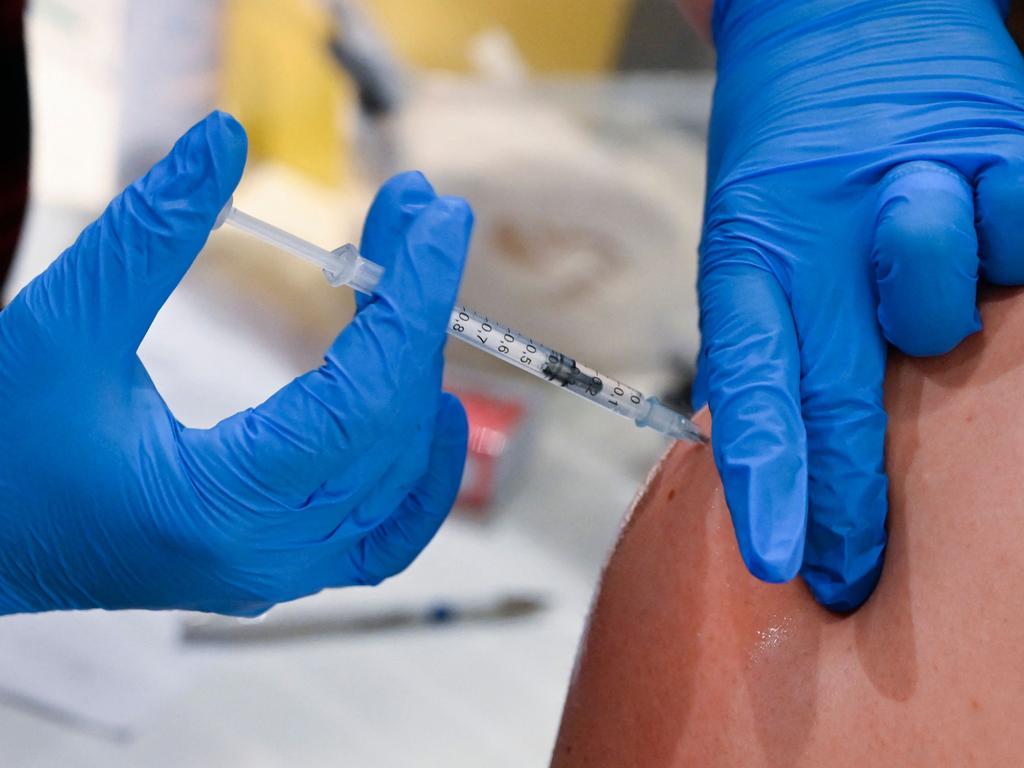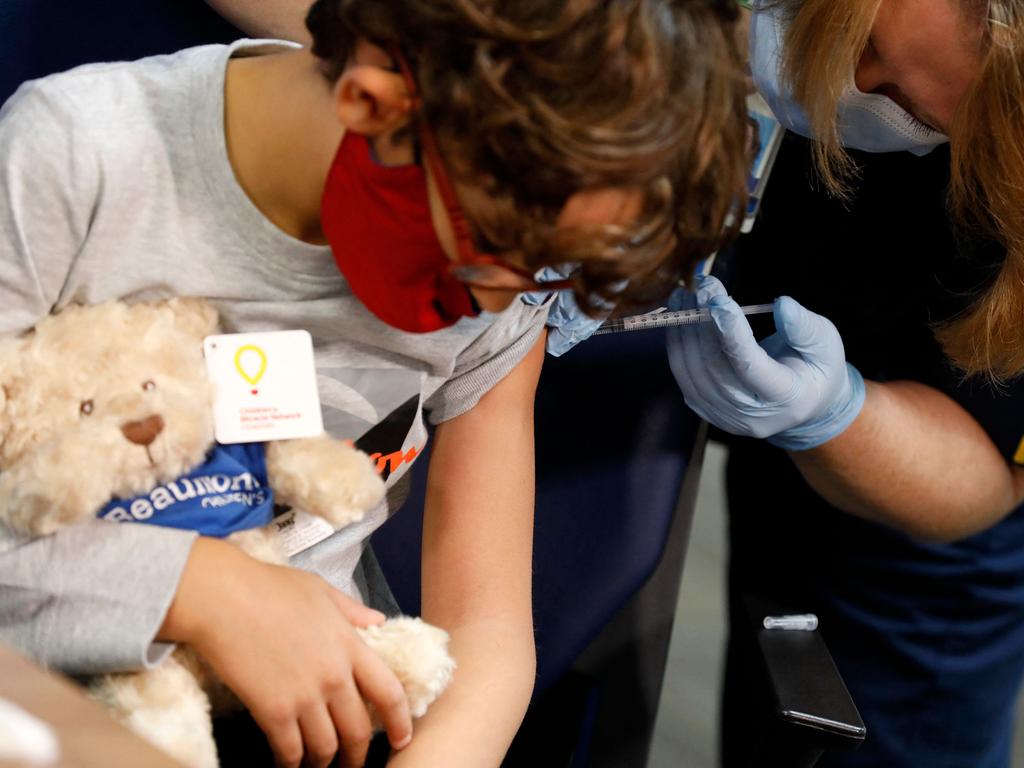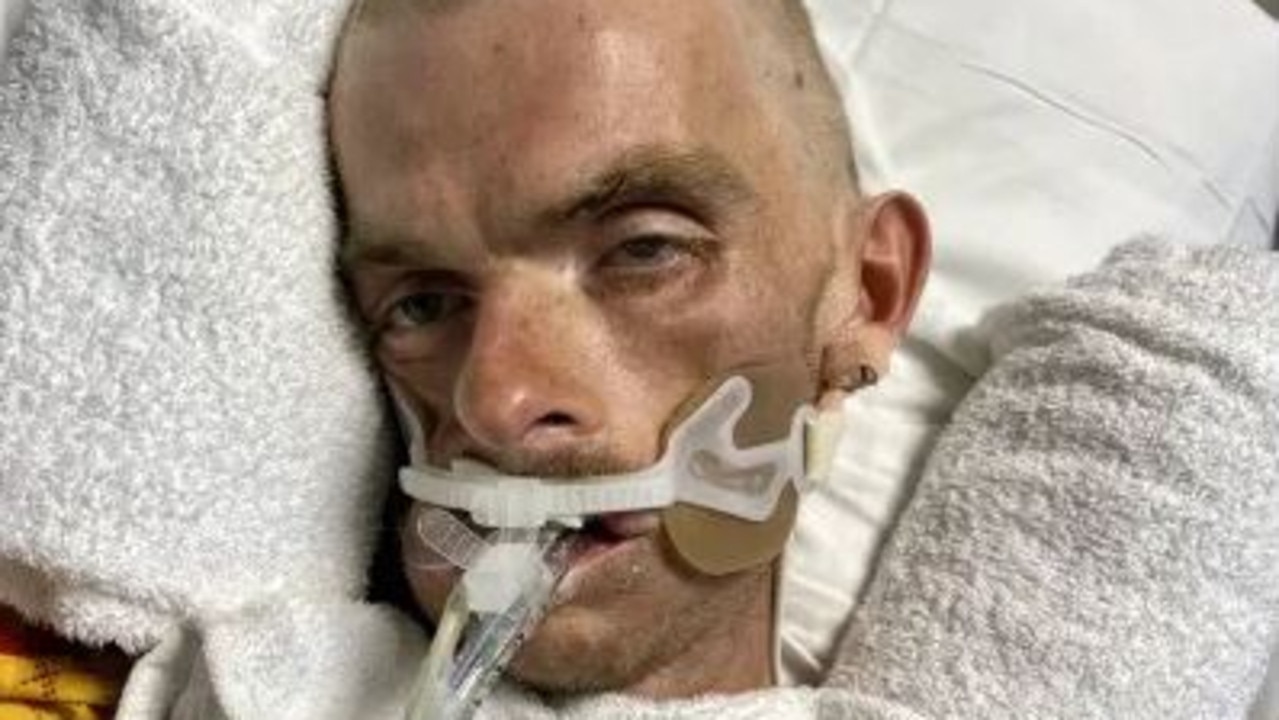‘Too busy’: Are rare vaccine reactions being brushed off by doctors?
Dan Petrovic doesn’t regret getting Pfizer despite suffering heart inflammation – but says his experience has raised questions about how rare side effects are reported.

Health
Don't miss out on the headlines from Health. Followed categories will be added to My News.
Dan Petrovic describes himself as an avid “pro-vaxxer” who has long advocated vaccines to his more hesitant friends – so it was a “comedy twist” when he was the one who suffered a rare side effect.
The marketing executive, 42, spent six weeks after his second Pfizer shot with constant chest pains, which his GP ultimately said was likely a mild case of pericarditis, or inflammation of the lining around the heart.
On September 18, four days after his jab, Mr Petrovic began to feel unwell while watching TV.
“I can’t lean to the left side, I feel a bit short of breath,” he said.
“It’s just like constant pain and palpitations. It doesn’t go away. Imagine enduring six weeks of that.”
Mr Petrovic, the managing director of search engine marketing firm Dejan, said he was bemused that for “six weeks of pain, they classify it as subtle and mild”.
“This wasn’t a little bit of pain, this hits really hard and it was lingering for a long time,” he said.
“It’s a debilitating condition – can’t work, can’t walk, can’t walk up and down the stairs, can’t play with my daughter.”
After weeks of “ping pong” between appointments and $3000 in medical costs, he has now largely recovered with only a “little bit of pain” once a week.
While he still doesn’t regret taking the vaccine, Mr Petrovic says one thing concerns him.
Neither his cardiologist nor his GP would submit an adverse event report to the Therapeutic Goods Administration (TGA).

‘Too busy’
After his experience, he fears that the TGA, which monitors adverse vaccine reactions, may not be getting the full picture.
“I asked my doctor, ‘Are you going to submit this to the TGA as suspected pericarditis?’” Mr Petrovic said.
“He said, ‘You can go online to do it. I’m too busy.’”
Similarly, his cardiologist, having ruled out more serious myocarditis, or inflammation of the heart itself, would not submit a report as he didn’t “see any damage” on his scans.
“Shouldn’t this be mandatory for medical practitioners?” Mr Petrovic said.
“There’s a big difference between a doctor report and a patient self-report. I cannot make a medical diagnosis, I’m not a practitioner.”
He did submit his own, which now appears in the Database of Adverse Event Notifications – the TGA’s anonymised list of raw, unconfirmed reports – but it’s unclear whether his case is included in the regulator’s overall numbers of pericarditis.
“My problem is that I have absolutely zero visibility into how my submission of an adverse effect has been treated, collected, processed and classified,” he said.
In its weekly safety report, the TGA lists cases assessed as “likely” myocarditis, as well as a larger number that are “suspected”.
Among likely cases, those classified as “level one” are “confirmed to be myocarditis based on strong clinical evidence including the patient’s symptoms, and results of tests and imaging”.
Mr Petrovic stresses he is still a strong supporter of vaccination against Covid-19.
“The pamphlet was saying [the risk of rare heart inflammation] is one in 100,000 – even if it was one in 10,000 I would have gone ahead and done it anyway,” he said.
“I was willing to accept the risk to protect the community.”
But he is concerned – from a data perspective – about what appears to be a lack of rigorous protocols for medical practitioners to report adverse events.
“I believe every doctor, every medical professional, when a patient complains of a complication after a vaccine, they should make a report,” he said.
Even if the doctor is not 100 per cent convinced the reaction is connected to the vaccine, he argues, the TGA should still be receiving this “dirty data”.
“I don’t appreciate working with bad data,” he said.
“Bad data means bad science. To me that’s not OK. In my profession I work with data – if I have bad data I make bad decisions for clients, and that’s just marketing. In health there is an even bigger responsibility.”

Reports encouraged
In a statement, the TGA said it uses “all valid adverse event reports, regardless of their origin, to look for patterns or ‘signals’ that may indicate a safety issue requiring investigation”.
“Our investigations are aimed at determining whether vaccination is likely to cause an adverse event,” a spokeswoman said.
“Reports received by the TGA of suspected myocarditis and pericarditis for the Covid-19 mRNA vaccines are reviewed against internationally accepted criteria to classify the likelihood of myocarditis. This assessment does not determine whether cases have been caused by vaccination.”
The spokeswoman said the TGA may request additional information “to assist in our assessment of classifying the likelihood of myocarditis and/or pericarditis following the Covid-19 vaccine”.
“In the case of reports from consumers, we contact the consumer’s health care professional if the contact details are provided,” she said.
“We also work closely with the state and territory health departments to follow up any missing information needed for our assessment. We may also contact the individual if required.”
A spokeswoman for the Royal Australian College of General Practitioners said all immunisers were “strongly encouraged to report all adverse events that are serious, unexpected or require medical attendance”.
“In most states and territories, immunisers are required to report on adverse events following Covid-19 immunisation, including New South Wales, Western Australia, Queensland, the Northern Territory, South Australia and the Australian Capital Territory to the relevant health department,” she said.
“Reporting is not mandated in Victoria and Tasmania, but it is strongly encouraged.”
Mr Petrovic worries that people being brushed off by health practitioners only fuels mistrust and conspiracy theories.
“The public cannot lose trust and confidence in science and the scientific method,” he said.
“It’s a slippery slope. If this is just laziness of doctors or bad administration, that’s OK, we can fix that. But if it’s, let’s just keep it quiet, hush hush, vaccinate as many people as possible and release the reports later … that’s conspiracy talk. But we can’t have people sweep things under the rug just so we get the vaccinations now.”
He is now wrestling with whether to vaccinate his daughter, who has asthma and so is in a higher-risk group for Covid-19 – but wants to know if she may be genetically predisposed to suffering the same reaction.
Similarly, he doesn’t know what this means for his booster shot.
Neither his GP nor his cardiologist were able to offer him any guidance.
“So what do we do? I don’t want to go through this again, and I definitely don’t want my daughter to,” he said.
Mr Petrovic says he does not want to fuel vaccine scepticism, hesitancy or misinformation.
“That said, what I’ve been through needs better attention and understanding in order to prevent or minimise it from happening in the future,” he said.
“We need to understand the exact mechanism of how this happens and whether certain people should be given a different vaccine or the existing vaccine can be modified to eliminate the adverse effect entirely.”

Second dose paused
In the US, researchers have begun to explore possible explanations for rare inflammatory heart conditions associated with mRNA vaccines, but there is still no proven theory.
The most common serious side effects associated with the Pfizer and Moderna vaccines are myocarditis and pericarditis.
Myocarditis is reported in about one out of every 100,000 people after receiving the Pfizer vaccine, according to the TGA, but is more common in young men and teenage boys after the second dose at four to seven cases in 100,000 people.
Several countries have now turned to a single-dose vaccination tactic for that age group, in order to provide partial protection from Covid-19 while reducing the risk of rare side effects.
In September, Hong Kong recommended a single dose of the Pfizer vaccine for children aged 12 to 17.
England and Norway have recommended a single dose for children 12 to 15 and are awaiting further data to make a decision on second doses.
Taiwan last week followed suit, suspending the second Pfizer vaccine for children aged 12 to 17, Taiwan News reported. The country also said it would hold off approval for children under 12 until the second dose issue was settled.
The TGA says as of November 7 it has received 288 reports assessed as likely to be myocarditis – an increase of 35 on the prior week – from about 22.7 million doses of the Pfizer vaccine.
Of the likely cases, around half have been treated in hospital with 11 treated in intensive care, according to the TGA’s most recent weekly safety report.
Most patients treated in hospital were discharged within four days.
The youngest case classified as “likely myocarditis” to date was 12 years old.
There have also been an additional 446 suspected myocarditis cases – an increase of 65 on the prior week – either alone or in combination with pericarditis, and 1202 cases of suspected pericarditis, an increase of 117.
“We encourage people to seek medical attention if they experience symptoms that could suggest myocarditis or pericarditis,” the TGA says.
“This includes chest pain, palpitations (irregular heartbeat), fainting or shortness of breath, particularly if they occur within one to five days of vaccination.”
More Coverage
Originally published as ‘Too busy’: Are rare vaccine reactions being brushed off by doctors?









